Meridian Medical. ...read
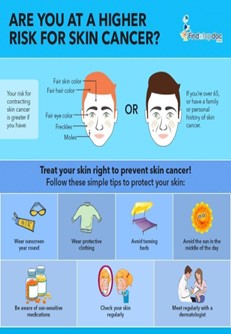
update May 05, 2022
MAY IS SKIN CARE AWARENESS MONTH
With millions of cases diagnosed around the world each year, skin cancer is the most common cancer. Fortunately, skin cancer is also one of the most preventable forms of cancer. By sharing facts about the dangers of unprotected sun exposure and encouraging people to check their skin for warning signs, we can and will save lives.
What is Skin Cancer?
Skin cancer is a type of cancer that affects skin cells and causes them to grow and multiply in an uncontrolled manner. Most of the skin cancers occur in the part of the skin that is exposed to the sun. However, skin cancer may develop in those parts which have minimum sunlight exposure.
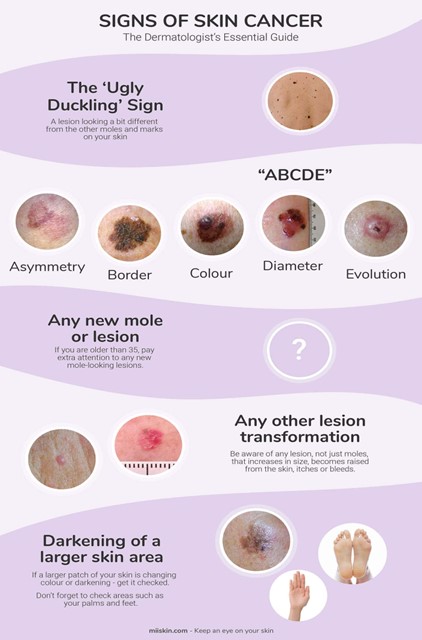
Meridian Medical Centre
Tel – 0706474232
Email – clientservice@mhg.co.ke
Yaya Centre Nairobi, 3rd Floor
YOU CAN HELP
#SharetheFacts on social media
YOU are the most important part of Skin Cancer Awareness Month! Share skin cancer facts, prevention guidelines, graphics, and early detection content.
Tell your #ThisIsSkinCancer story
Have you been affected by skin cancer? We’d love to hear your story. Share it on Facebook, Twitter and Instagram, tag us and use the hashtag, #ThisIsSkinCancer. Let’s create a powerful community of skin cancer warriors and spread the word about the dangers of skin cancer.
Create a Fundraiser
Share your passion and become a champion by creating a crowdfunding page. Rally friends, family and co-workers to join you in your commitment and raise funds to support our lifesaving programs.
Spread the word about the big see
Skin cancer is the cancer you can see. Yet it often goes undetected in the early stages. That’s why campaigns like #TheBigSee campaign empower you to get to know your skin, check yourself in the mirror and keep three simple words in mind: New, Changing or Unusual. It could save your life.
Help Fund Lifesaving Programs
Make a donation in support of Skin Cancer Foundation. Skin cancer is a relentless disease that strikes one in five people by the age of 70. Your gift funds crucial skin cancer education programs focusing on early detection and prevention, and research grants that help save lives.
Connect with Skin Cancer organisations
Connect with organisations on Facebook, Twitter and Instagram and join the skin cancer conversation. When you follow them, you can be sure that you’re getting accurate information from leading medical experts.
Reach Young People
Organisations like #SunSmartU provides educators with the resources they need to teach youth how to make sun-safe choices that are vital in preventing skin cancer. We ask that you please share information about these programs.
![]()
![]()
Sleep fine. ...read
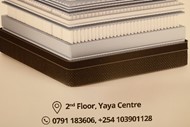
World Sleep Day
World Sleep Day is an annual event, intended to be a celebration of sleep and a call to action on important issues related to sleep, including medicine, education, social aspects and driving. It is organized by the World Sleep Day Committee of World Sleep Society and aims to lessen the burden of sleep problems on society through better prevention and management of sleep disorders. This year World Sleep Day in 2022 falls on Friday, March 18th and on Friday, March 17th in 2023.
Yaya Centre is proud to feature The Sleep Shop on 2nd floor for this year’s World Sleep Day and we are focussing in detail on their different types of Mattress’ and Pillows:
MATTRESS
The Sleep Shop’s DREAMER lives up to it’s really name. Plush and Firm. Quilted luxurious Pillow Top. Full orthopaedic and Posturepedic with high density foam, individually wrapped pocket steel coils. With a depth of up to 32cm to suit your desired comfort and support. You will keep dreaming
PLUS Mattress in White and Black has the look and feel of a luxury mattress without the high price tag. A firm pocket spring mattress full orthopaedic and posturepedic with great support for your back and comfort. Can be turned and used both side providing the same luxury firm feeling.
The CORNWALL offers multiple comfort and support layers to help you enjoy a restful night’s sleep. Euro Top layer of luxurious Memory Foam with mini individually wrapped pocket springs that offer sleep inducing goodness that is pressure relieving for the back and joints. Underneath are layers of full individually wrapped steel coils that offer optimal support to ensure durability and longevity.
The Sleep Shop’s COMFORT Mattress is one of a kind… very rear with great futures… Double-sided pillow top. Can be used both sides. Great Firmness, yet very cushioning. Luxurious fabric, breathable, durable, Hypoallergenic. Spring mattress with a 10-year guarantee… Comfort mattress is like a dream.
HARMONY - Full Orthopaedic and Posturepedic Memory Foam Mattress.
- Great for back support and pressure points. Reducing pain and discomfort.
As memory foam reacts with your body heat, it softens as you lie on it and so help support your body along the curves. It also minimizes turning and rolling and so promotes better restful sleep.
- Great for any sleep position.
- Allergy friendly. Resists mold, mildew, dust mites.
Pillow Top Luxurious Mattress with Memory Foam topper attached. High quality steel spring with a 480 coil.
Can support heavier weights as pocket spring hold each person weight individually making it very durable and supportive.
PILLOWS
Contour Memory foam pillow with zipped and washable temperature sensitive cover. Relief of back and neck pain. Mould to your shape and provide perfect support.
Orthopaedic Contour Cervical Memory Foam Pillow. Contoured to support the natural curvature of Head, Neck and Shoulder. Offers pain relief to the neck and shoulders.
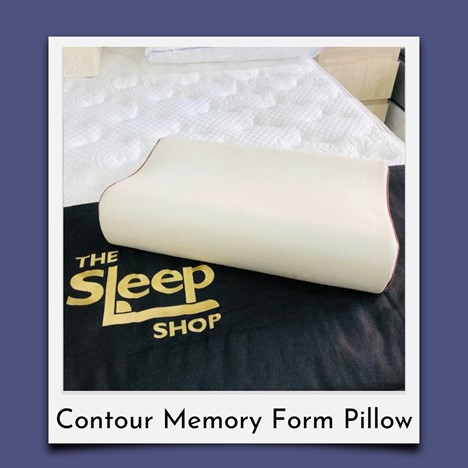
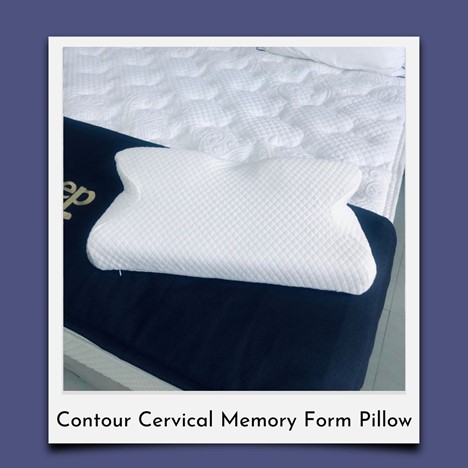
Meridian Healthcare on Menopause. ...read
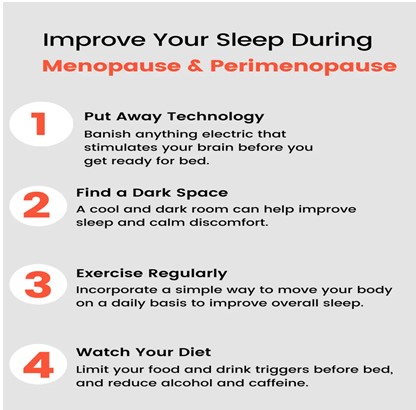
update Mar 17, 2022
Is your body going through mid-life changes and you're not sure what is going on? Read this comprehensive, easy to understand Menopause Guide produced by Meridian Health at Yaya Centre 3rd Floor. All you need to know on what to expect from pre, peri and post menopause, symptoms and treatments.
WHAT IS MENOPAUSE?
• This is the time when a woman stops getting her menses permanently.
• It is the one day that marks the point at which a woman has gone for 12 consecutive months without a period.
• After this day, you are technically postmenopausal.
• Menopause is a natural phase in a woman’s life and is not a disease.
WHEN DOES IT HAPPEN?
• Menopause usually occurs between the ages of 45 and 55 years.
• For some women, menopause can happen as early as the 30s or 40s.
• For other women, menopause may not occur until they reach age 60
HOW DO YOU KNOW YOU HAVE GOTTEN TO MENOPAUSE?
• Menopause occurs when a woman has gone for 12 consecutive months without experiencing menstruation.
• While hormonal variations are common, it is difficult to diagnose based on hormonal levels.
PERIMENOPAUSE
• This is the period leading up to MENOPAUSE. It typically lasts 3 to 4 years, though it can take up to 10 years and usually occurs during the 40s.
• During this period, there is decreased production of estrogen and other sex hormones. This results in symptoms of perimenopause.
• The most frequently experienced symptoms include:
o Hot flushes
o Sleep disruption
o Vaginal Dryness
o Overactive bladder
o Hair thinning
o Irregular periods
o Mood swings
o Loss of libido
o Reduced bone density
o Weight gain
• The symptoms worsen as a woman gets closer to menopause.
POST MENOPAUSE
• In post menopause, a woman’s hormone composition is similar to what it was before puberty.
• While most women report feeling better overall post menopause, they may continue to experience hot flushes into their 70s.
• One should not experience vaginal bleeding after menopause if they are not on hormone therapy. In case of post-menopausal vaginal bleeding, one should seek medical attention immediately.
COPING WITH MENOPAUSE
• Achieve and maintain a healthy weight
• Eat a balanced diet rich in Calcium (dairy, green leaves, fortified foods) and vitamin D (oily fish, egg yolk, fortified foods, sunlight) to prevent bone loss
• Protein rich diet helps to prevent muscle loss and weight gain
• Avoid trigger food for hot flushes such as coffee and sugary foods
• Exercise regularly for better mental health, better sleep, healthy bones and weight management
• Drink enough water to reduce vaginal dryness and reduce bloating. It also aids in weight loss
• Stop smoking and alcohol to deal with hot flushes and sleep disruption
• Relaxation exercises and massages reduce anxiety and improve quality of sleep
• Use lubricant to address vaginal dryness
HORMONAL REPLACEMENT THERAPY
• This is medication that contains female hormones that is used to manage the symptoms of menopause such as hot flushes, vaginal discomfort and bone loss.
• Hormonal therapy is recommended for those with moderate to severe symptoms and is tailored to the individual.
• Your doctor will weigh the benefits of HRT against the risks before initiating therapy at the lowest dose and for the shortest duration to reduce the risks such as heart attack, stroke and breast cancer.
HOW TO COPE WITH MENOPAUSE
A) SLEEP DISTRUPTION
• -managing the night sweats will take care of the sleep quality with hormone especially as progesterone aids in sleep as well as some SSRIs (selective serotonin reuptake inhibitors) -Stop smoking as it is linked with earlier perimenopause.
• -Cognitive behavior therapy (CBT) it’s more about learning how to calm and self soothe yourself through a sleepless night.
B) HOT FLUSHES
• Stop smoking help minimize the severity of hot flashes during menopause and beyond
• Start limiting alcohol. We all become more sensitive to its effects as we grow older, e, drinking can trigger hot flashes.
• hormones therapy, SSRIs and anti-anxiety meds that have been found to have the welcome bonus of reducing hot flashes
C) VAGINAL SYMPTOMS
• For vaginal dryness use of lubes and vaginal moisturizers.
• If your menopausal symptoms are mostly around your vagina, localized estrogen.
D)OVERREACTIVE BLADDER
This is a group of muscles supporting your core and abdominal organs. Over time it can become weak or stressed, particularly after childbirth, leading to issues like incontinence that can progress with age. Doing Kegel exercises can help.
WHAT IS HORMONE THERAPY?
a) ESTROGEN AND PROGESTREONE THERAPY
• They are used in combination because when taken alone, estrogen can increase your risk for certain types of cancer, which progesterone can help to mitigate.
• Estrogen therapy comes in two main types.
• Systemic delivers estrogen throughout your body
• Patch you place directly on your skin
• Tablet Localy delivers a low dose of estrogen directly to your vagina to address vaginal symptom as a cream, gel, or an inserted ring.
• Progestogen therapy can come in the form of natural progesterone or synthetic progestin, as well as an IUD.
• With long term use (more than 5 years), there is an increased risk of breast cancer, blood clots, and stroke.
• Because of the breast cancer risk, many doctors do not recommend estrogen-progestogen therapy for women with a family history of breast cancer (they occasionally prescribe progestogen-only, which can provide some relief for hot flashes and sleep issues).
• This is also why the menopause mantra for HT that you will hear repeatedly is to take the lowest dose for the shortest time that is effective to treat your symptoms.
• If you are not eligible for hormone therapy, don’t despair. There are more non-hormonal menopause treatments than ever before, including SSRIs, anti-anxiety meds, steroids,
HOW DO YOU DECIDE IF HORMONE THERAPY IS FOR YOU?
It depends on what your goals are. Here are a few questions to consider.
• What are you trying to treat? If you want to relieve hot flashes, night sweats and related sleep disturbances, manage mood swings, reduce urinary incontinence; and prevent bone loss, HT can help.
• How intense are those symptoms? How much do they disrupt your life?
• Are there any contraindications? For example, do you have undiagnosed vaginal bleeding, breast or uterine cancer, a history of blood clots, heart attack, or stroke risk?
• What is your age and how far past menopause (if at all) are you? The risks and outcomes look better for people who start HT under the age of 60 and as soon as possible in relation to when they first enter menopause. (Beyond that, the risk for heart disease, stroke, and dementia rise.) This is why the recommendation is to start HT at the first signs of bothersome menopause symptoms at the lowest dose for the shortest possible time.
HT is not going to make everything all better either. For best results with HT, getting your lifestyle on the right track (nutrition, movement, sleep habits, mental health) will drastically help improve its efficacy.
COMPLICATIONS OF MENOPAUSE
A) EARLY AND PREMATURE MENOPAUSE
• Early menopause occurs between 41 and 45,
• Premature menopause if it happens before the age of 40.
• This can occur due to premature ovarian failure, which is when your ovaries stop producing eggs before the age of 40 because of:
genetic anomaly
Aautoimmune diseases like lupus
hormonal insufficiencies
Thyroid disease
Damage to your ovaries e.g by cancer treatments
Hysterectomy (removal of uterus)
oophorectomy (Removal of ovaries)
Primaryovarian insufficiency (when your ovaries do not produce the normal amount of estrogen or don’t release eggs regularly before age 40.
• Premature ovarian failure is not reversible. However, pregnancy may still be possible through IVF. Unlike premature ovarian failure, primary ovarian insufficiency is treatable with estrogen.
B) INCREASE RISK OF HEART DISEASE WHEN ONE GETS TO MENOPAUSE
• This is caused by accumulation of bad cholesterol High LDL cholesterol due to decrease in level of estrogen.
C) OSTEOPOROSIS -It is to less estrogen
D) LOSS OF MUSCLES
You’re losing muscle mass faster than ever. It’s never too late to start weight-bearing exercise, and it’s not as hard as it may seem. For example, walking regularly and getting your steps in is a weight-bearing exercise.
E) COGNITIVE HEALTH
Risk for Alzheimer's and dementia increases post menopausee and with age, so be aware of the early signs.
update Oct 07, 2020
Mwangi – Longest serving staff at Bookstop. ...read
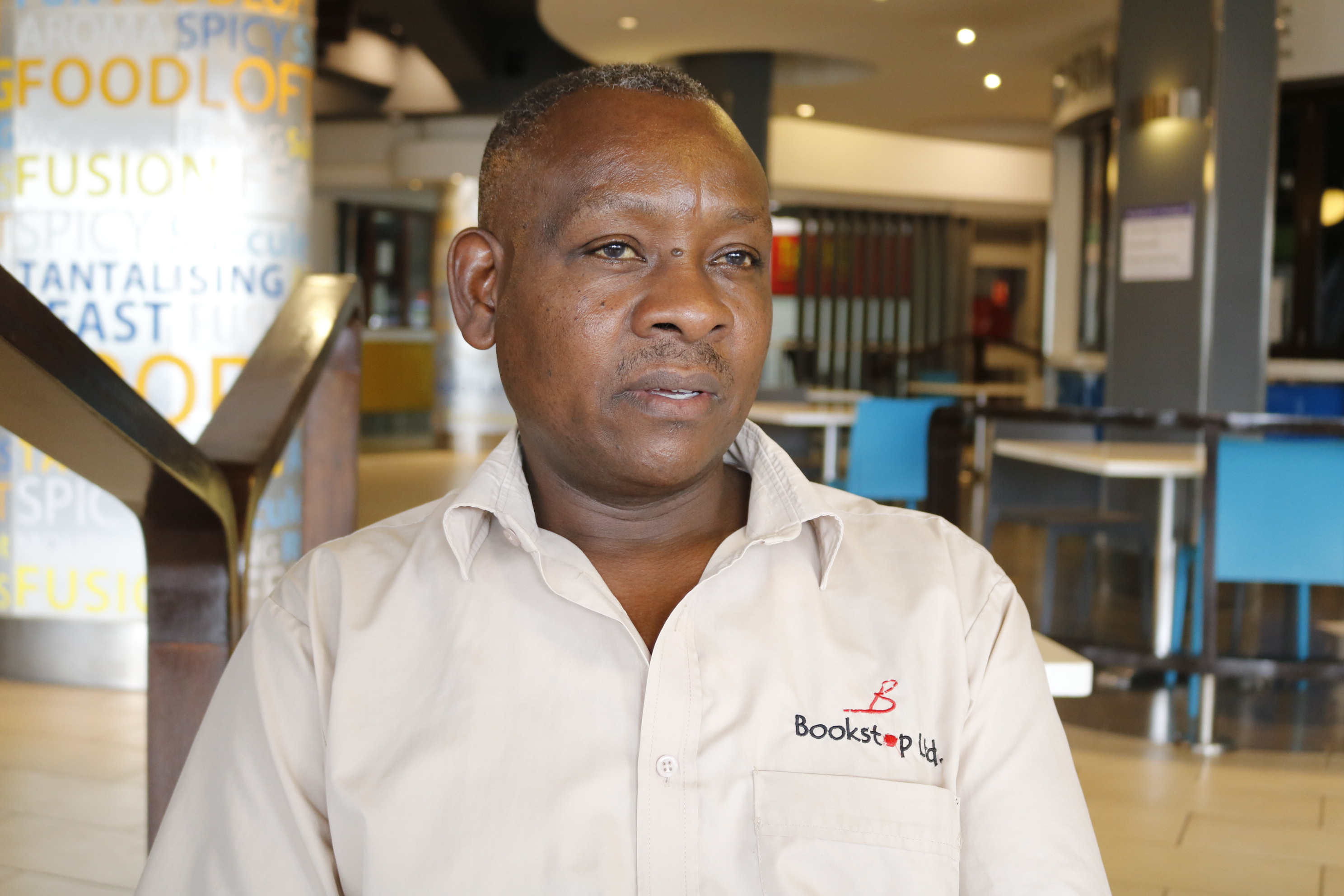
List valuable lessons learned about customer service while working at Bookstop?
- Understanding customers: what they need and want.
- Product knowledge: serving customers with the information they are looking for.
- Being a good listener.
- Keeping up with times: being innovative (creating websites, delivery books etc.)
Describe a typical day at work and how you assist customers to choose what they want?
I regard a bookshop as a learning institution: I learn new things every day. There is no dull moment i.e., Different buying habits.
Product knowledge and good listening skills helps me a lot recommending books for all customers.
What is your experience at Bookstop and insights of different age groups’ reading habits?
-All age groups (kids, teens, and grownups) are all well represented.
-However, kids and teens are our major consumers (they read more).
update Oct 07, 2020
Tête-à-tête with Ciku -
Longest-serving Beauty Therapist at Aristocuts. ...read
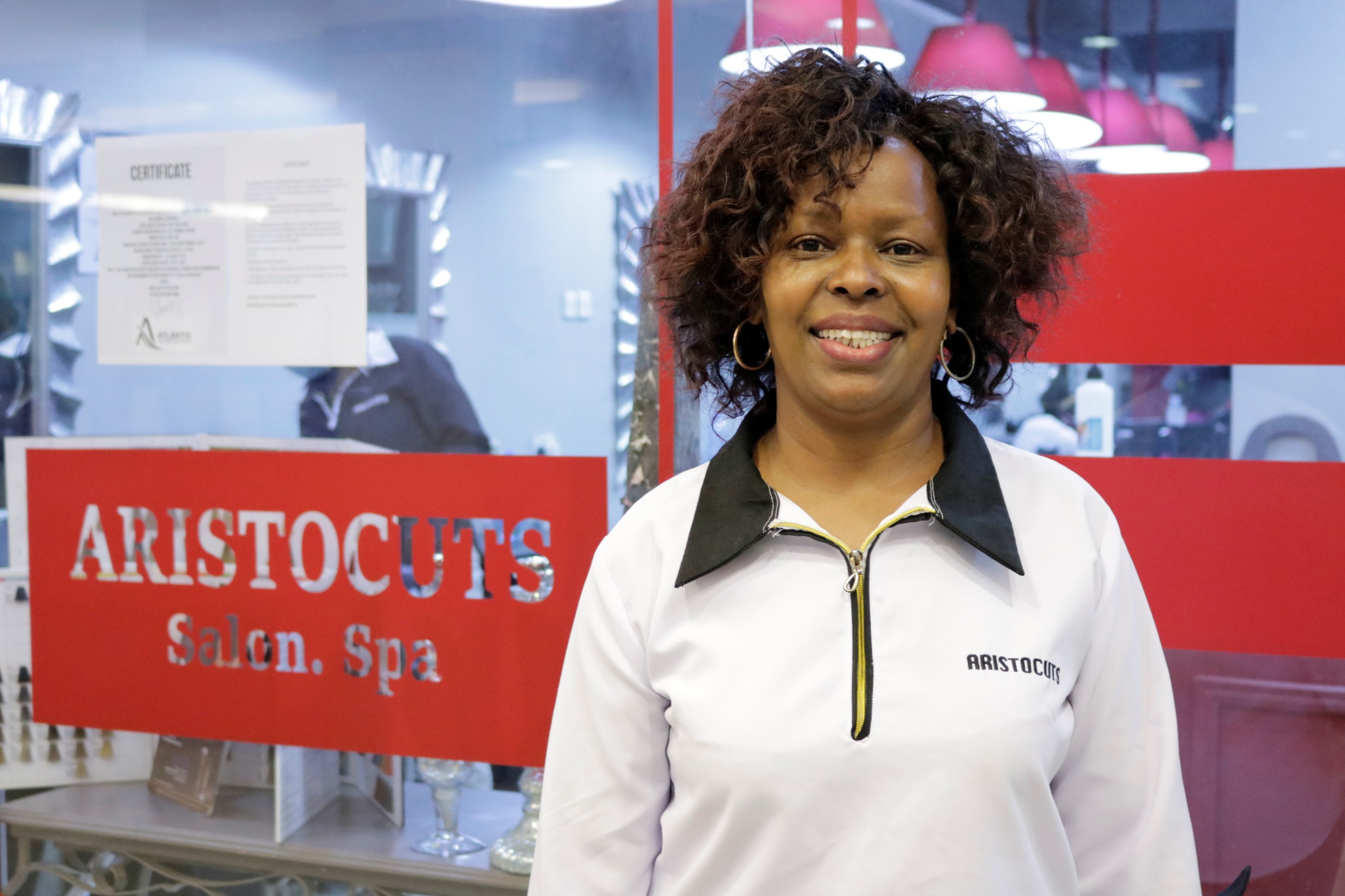
Ciku has worked in the beauty industry for over 20 years. She explains that learning the trade of a beauty therapist really does give you a ‘skill for life’ that can be relied upon to make money.
Ciku is the long-time Assistant Manager of @AristocutsBeautySalon, one of the most prestige and in-demand salons at @YayaCentreNairobi. If you need some beauty inspiration, Aristocuts Beauty Salon has a lust-worthy Instagram account which showcases their amazing work. Check out their account on IG: @aristocuts_beauty_
What does your day-to-day look like?
As assistant manager of the salon and a beautician myself, my day is varied. I coordinate appointments and bookings, arrange the duty roster, make sure that our beauty therapists are on time and well-presented and that the entire salon is clean and sanitised first thing and then hourly after that. I manage cash-flow, payments, banking, do stock taking, place orders for new products, handle payments and remind customers to use their Yaya loyalty card to help them collect points.
Describe how you worked your way up the ladder.
I started out as a receptionist’s assistant and then became interested in the beauty world when I saw the transformation clients go through every time they visit the salon. I also admired the artwork done on the nails and realised the pay was attractive, so joined Ashley’s School of Hairdressing and Beauty for my training.
What do you enjoy most about your job?
The moment I enjoy most is when customers come smiling to the reception desk after a treatment, showing they are happy and satisfied. Any compliments they give really uplifts me and makes my work feel worthwhile.
And the least?
Probably when a member of staff is not on time, though this rarely happens due to our efficient appointment booking system.
What are the common misconceptions about the work you do?
Most people do not consider ‘Beauty Therapist’ as a profession, they assume it is a low paying job but in fact it can be great career choice for many people.
What are the main skills you need to work as a Beauty Therapist?
Good customer service is the most important skill, in my opinion. As well as the ability to analyse different skin types and recommend the right treatment and products for clients, keeping any medical needs of theirs in mind.
What advice would you give to someone wanting to break into this career?
It is a fun and a great career which pays well, so I would definitely recommend it. You grow with experience and, in time, you can branch into working as a consultant or set up your own business.
*Book your hair or beauty appointment today at @aristocutsbeautysalon, Yaya 2nd floor.